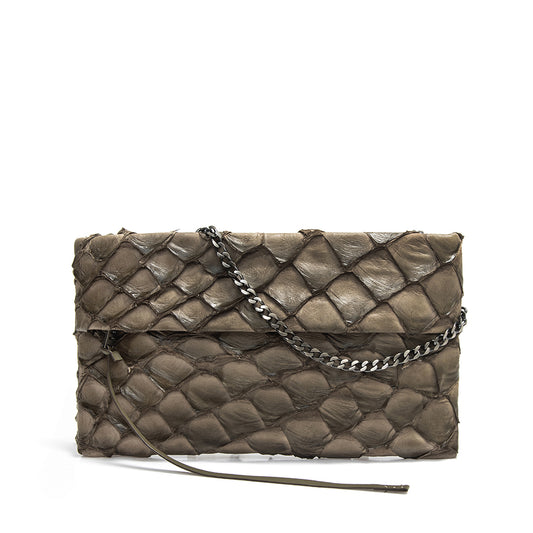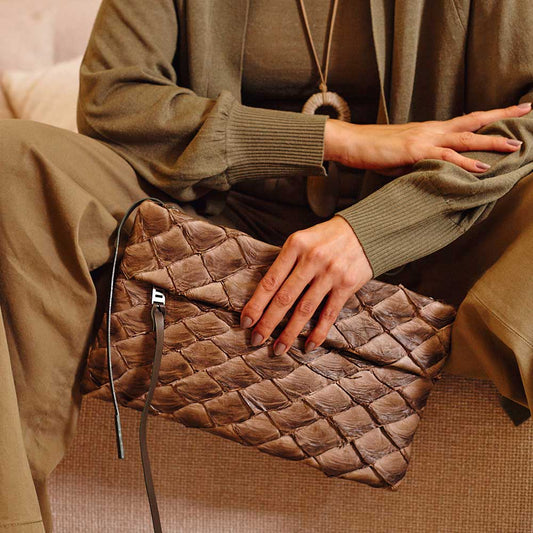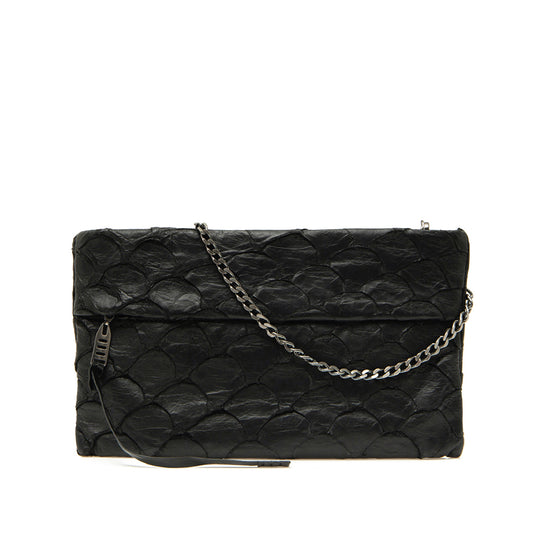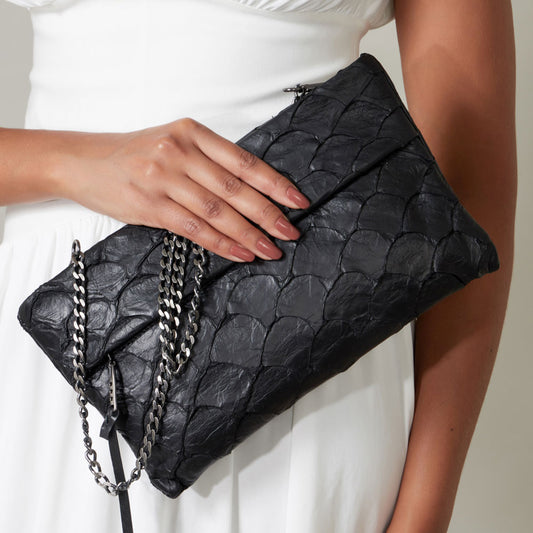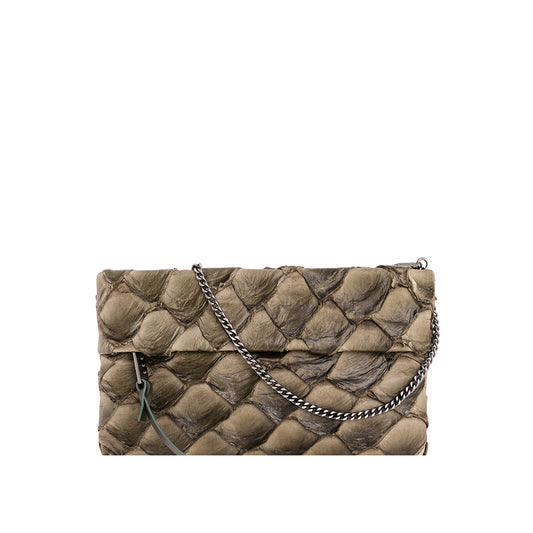Pirarucu
for us, a lot more than just a fish.
The name, of Tupi-Guarani origins, comes from one of its main characteristics - the color of its tail. It comes from combining Pira (“Fish” in the native language) with Urucum (“Red”). Our wonderful, red fish!
A real treasure of the amazonian basin, the Pirarucu is one of the largest freshwater fishes in Brazil, found mainly in floodplains with lighter currents.
Also known as the “Codfish of the Amazon”, it nearly became extinct due to its excellent flavor and alluring scales, used as sandpaper and in the manufacture of decorative products.
Thankfully, its fishing became regulated by rigorous criteria for sustainability, ensuring the species’s preservation. Currently, this amazonian treasure guarantees food and income to many riverside and indigenous communities in the area.
Government agencies and NGOs dedicated to biodiversity establish the rules for its fishing and supervise all phases of the process - conservation periods, minimum size, ethical trading and sustainable processing.
The meat and scales of the fish have always been values; however, its wonderful leather used to be considered scrap. Thankfully, it gradually was transformed into noble materials that can be used in the production of fashion accessories and decoration. Handled in regulated plants, treated with organic and chrome free products, it went from scrap to valuable by-product of the fishing industry.
At Denise Gerassi - always focusing on creative design and the use of special materials, obtained through sustainable processes that respect the environment - we participate closely in the process of Pirarucu leather preparation. In this way we are able to attain amazing, bright natural colors, with premium texture, and resistant but flexible materials, guaranteeing the beauty, elegance and originality of our products.
The Pirarucu, a genuine amazonian treasure, also became a treasure for those of us that value quality design, turning our products into real works of art that are produced in ethical, sustainable and creative ways.
Long live the Pirarucu!
pictures
- Choosing a selection results in a full page refresh.
